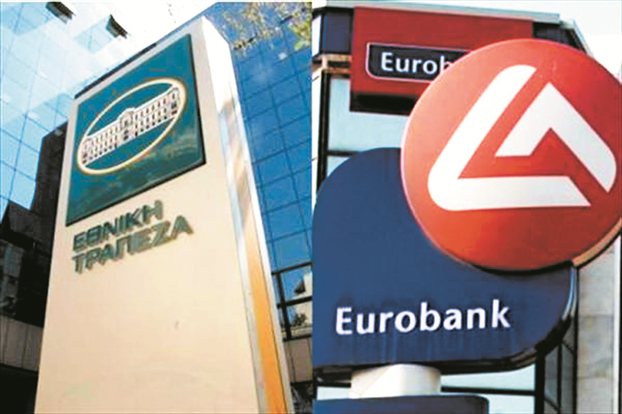Photo: Naftemporiki
Another bank merger in Greece has become past history, since the boards of the National Bank of Greece and Eurobank have informed the management of the Bank of Greece that they are not able to raise from private investors 10% of the funds required for their recapitalization. Both financial institutions are to be transferred to the Financial Stability Fund, which means nationalizing them.
In recent days, there have been many media reports that clouds have been gathering and a storm has been rising in connection with the deal between the two banks. The representatives of the lenders who originally wanted the consolidation of Greek banks do not seem to have been pleased by the specific schemes and business plans presented by the boards of the National Bank of Greece and Eurobank. There are few details in the media, but one of the things that Paul Thomsen, Matthias Morse and Klaus Masuch are strongly opposed to is the amount of compensation for dismissed senior officials of the National Bank of Greece. According to reports in the media, 800 employees should be paid compensation totalling 200 million euro.
For its part, the Greek government called for an agreement with the lenders at any cost as regards the fate of the two banks. Government circles believed that it was a very bad scenario to discuss the merger of the National Bank of Greece and Eurobank at Eurogroup level, as all options could have been possible there.

The failure of the merger between the two financial giants collapsed their shares on the stock exchange by a record 30%. "The recognition that neither of the two financial institutions will be able to collect 10% private investment for recapitalization is a negative development in itself. This shows their shareholders that they hold the shares of a nationalized bank," Maria Kanelopoulou, analyst at the stock company Euroxx, told Naftemporiki. The shares of Piraeus Bank dropped by 20% as well and the banking index of the Athens Stock Exchange decreased by 17%.
To be continued